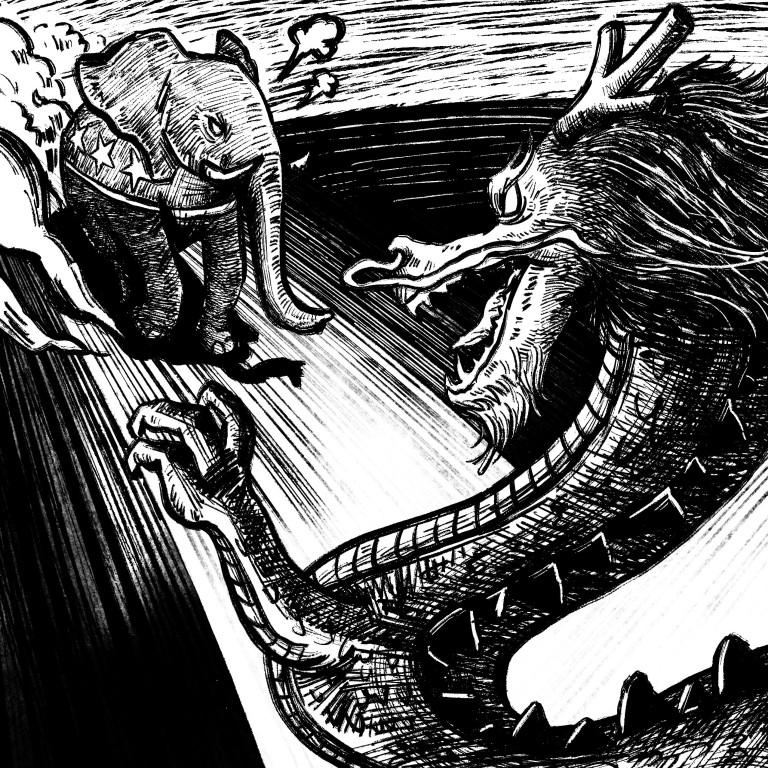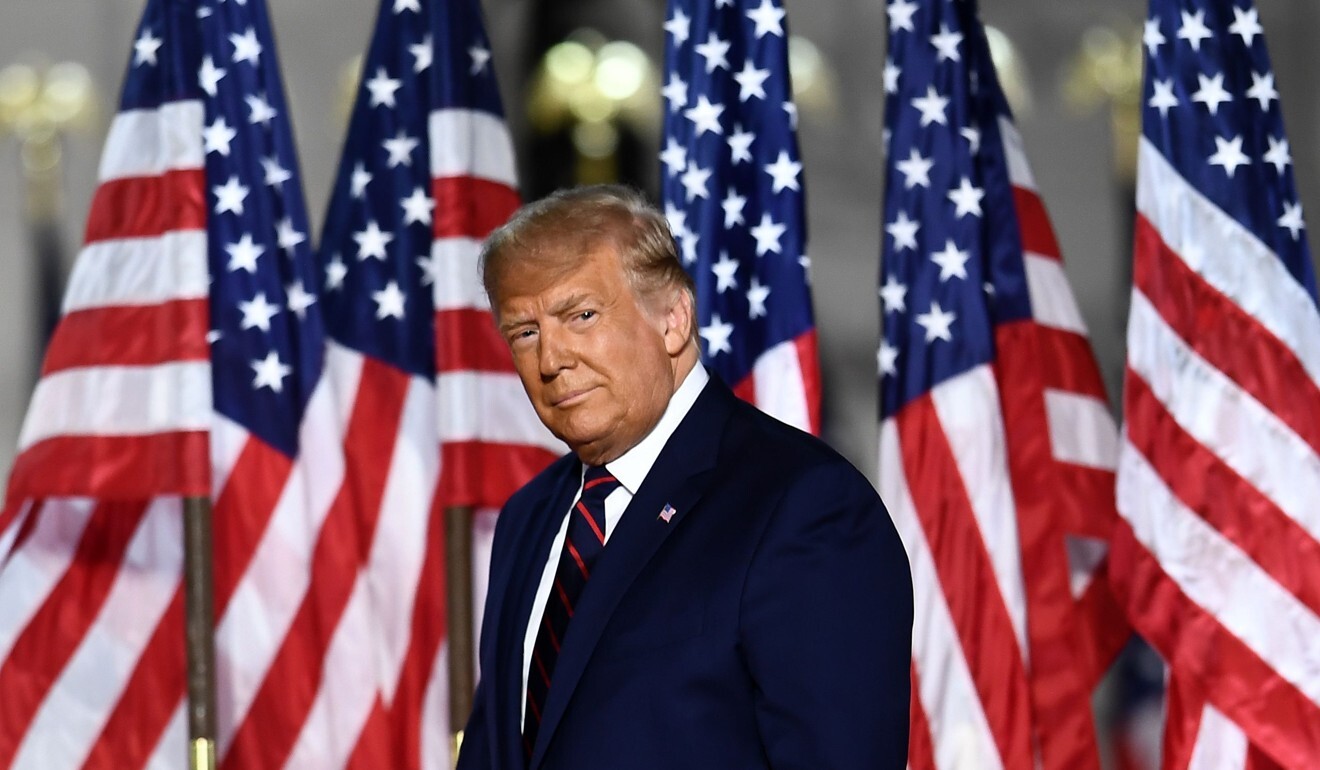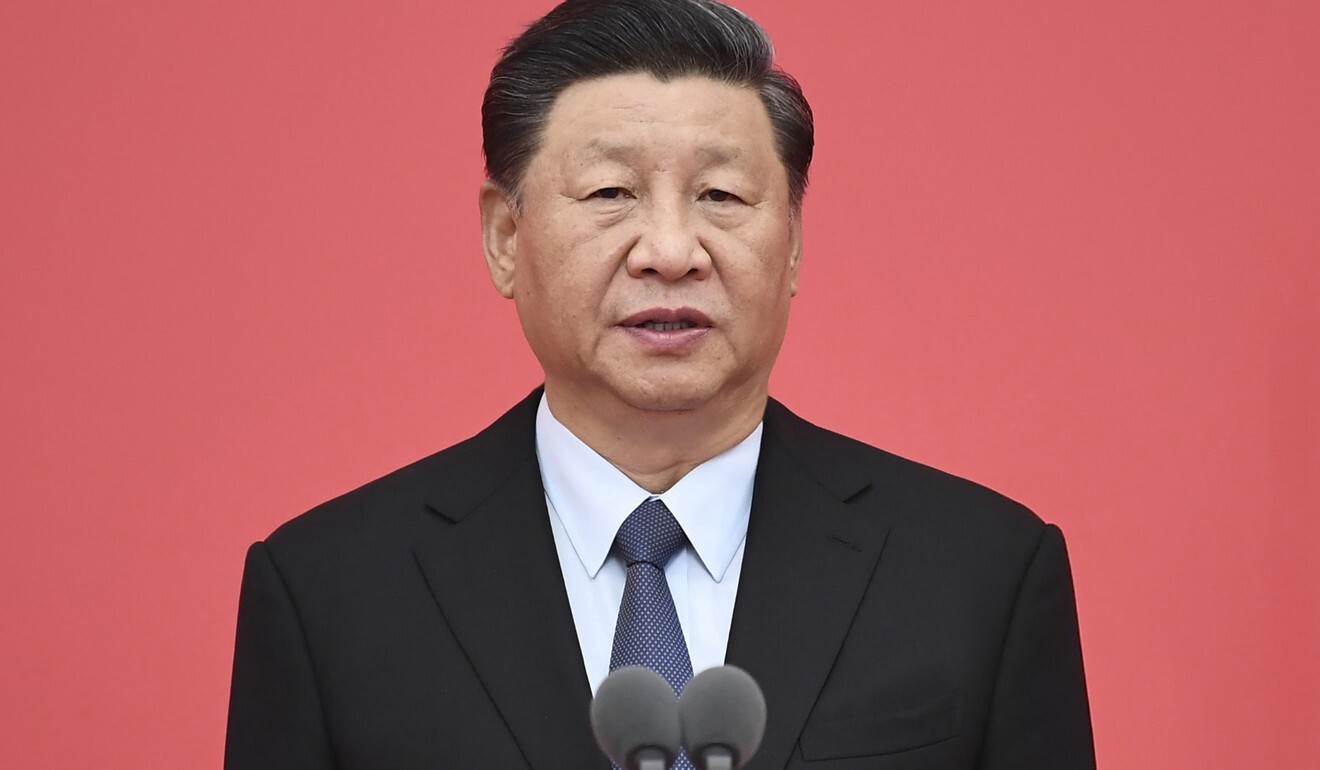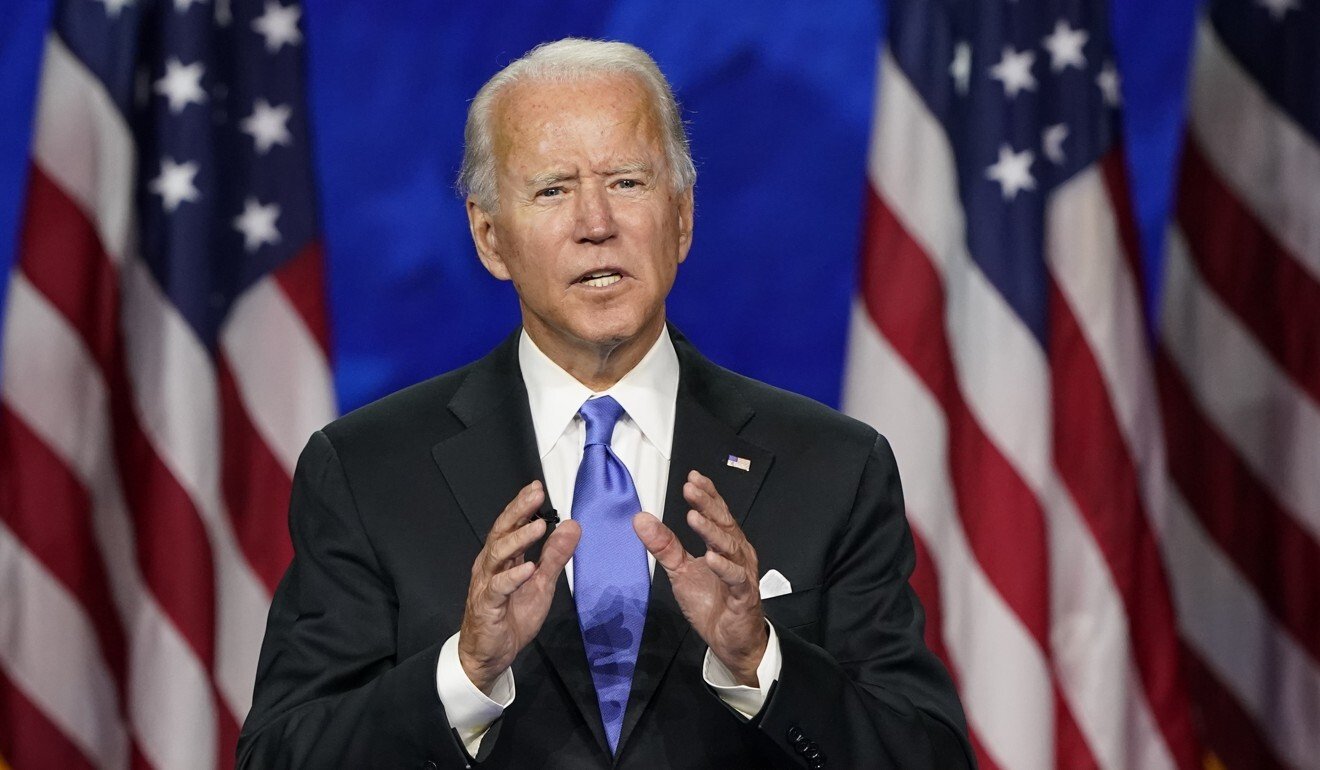
US elections: whether Trump or Biden wins, China policies won’t change much, experts say
- Joe Biden and his Obama-era advisers wouldn’t likely hit a reset button on dealings with Beijing
- Little trust exists in the US now toward China, and both campaigns recognise the tense new reality
As voters in the United States prepare for the presidential election in November, the South China Morning Post is exploring the potential ramifications for China. The third part of the series looks at how Joe Biden’s China policy compared to Donald Trump’s may not differ very much.
Last week, during a Republican National Convention that featured hours of attacks on Democratic presidential nominee Joe Biden, news broke that Trump administration officials were weighing whether to label China’s human rights abuses against Uygurs and other Muslim ethnic minority groups a genocide.
The Biden campaign’s response to the news, first reported by POLITICO, was swift. And, with just nine weeks left in an all-out campaign against US President Donald Trump that Democrats describe as a battle for the “soul” of the country, it was also unusual:
Not only do we agree, a campaign spokesman retorted, but Joe Biden already said it first.
In an especially divisive and convulsive presidential election campaign season, Americans are focused mainly on domestic issues, including racial justice and a soaring coronavirus death toll.
US presidential election: the candidates, the issues, the polls … and China
Yet in a rare example of unity, both campaigns seem to regard China as a pressing foreign policy issue – and are using it to bash each other for not being “tough enough” with Beijing.
“Trump rolled over for the Chinese,” said a Biden campaign ad released this spring.
“China would own our country if Joe Biden got elected,” Trump told the RNC last week, more than once.
The US-China relationship is fraught on many fronts – trade, technology, military, human rights among them. But while Trump and his administration have made clear what policies it will continue to pursue, Biden and his advisers have yet to offer much in the way of specifics about how his dealings with China might be different from Trump’s.

06:04
US-China relations: Joe Biden would approach China with more ‘regularity and normality’
Would a President Biden continue Trump’s tariffs policy? His government ban of Huawei Technologies devices? His sabre-rattling in the South China Sea in the face of China’s own increased chest-thumping?
Despite repeated attacks from each candidate tarnishing the other as weak on China, experts said that no matter who wins the election – no matter who the campaigns’ foreign policy advisers are – neither side will likely be eager to hit the reset button on tensions with Beijing once the election is over.
“There’s been a real sea change in sentiments in the United States among both Democrats and Republicans,” said Elizabeth Freund Larus, chairwoman of the political science and international affairs department at the University of Mary Washington in Fredericksburg, Virginia. “I don’t anticipate that we’re going to go back to, say, US-China relations of the 1990s.”
Back then, Washington’s view of US-China relations was defined by a different belief: that US businesses and universities and technology might eventually convince China to open up its economy and political system.
But the candidates and their advisers now all recognise the tense new reality of US-China relations.

Trump and his “China hawk” advisers, as they are often called – led by the Secretary of State Mike Pompeo, White House trade adviser Peter Navarro and US Trade Representative Robert Lighthizer – are well known. Some officials might remain for a second term if Trump wins re-election, experts said.
But David Lewis, a political-science professor at Vanderbilt University in Nashville, Tennessee, noted that regardless of who stays, the policy seems set. “China policy seems to be as much driven by the president himself as any of his advisers,” he said.
Obama-era advisers adjust to a new reality
On the other hand, Biden, who was Barack Obama’s vice-president, has surrounded himself with advisers from that administration, including Antony Blinken, a former deputy secretary of state and deputy national security adviser. Others reportedly advising the campaign include Jake Sullivan, Biden’s own former national security adviser; Ely Ratner, his former deputy national security adviser; Kurt Campbell, a former assistant secretary of state for East Asian and Pacific affairs; and Jung Pak, a former US intelligence officer and expert on North Korea.
In one sign of the shift in thinking that has taken place since the Obama years, Ratner and Campbell acknowledged in Foreign Affairs in 2018 that the US had “underestimated just how simultaneously insecure and ambitious China’s leadership really was”.
“Getting this challenge right will require doing away with the hopeful thinking that has long characterised the United States’ approach to China,” they wrote.
In another, Ratner, now at the Centre for New American Security, a Washington-based think tank, testified to Congress last year that China seeks to “make the world safe for authoritarianism”.

And in an essay he wrote with the historian Hal Brands in Foreign Policy in May, Sullivan stated that “the signs that China is gearing up to contest America’s global leadership are unmistakable, and they are ubiquitous”.
A US counter-intelligence report released in early August concluded that China views Trump as “unpredictable” and that the intelligence community now “assesses that China prefers that President Trump does not win re-election”.
However, experts say it may not be so simple; there is some expectation in China that a Biden presidency might end Trump’s trade war, for example, but perhaps less awareness of just how little trust exists in the US overall right now toward China, including from Biden and his advisers.
In fact, experts said that when it comes to China, the two candidates likely differ more in style than in actual policy.
US elections: who does China really want to win?
Previous presidents Bill Clinton, George W. Bush, and Barack Obama had all “talked tough” about China while campaigning – “and then instituted more realistic policies once getting to DC”, said Allen Carlson, director of the China and Asia Pacific studies programme at Cornell University.
“Trump is then the outlier here,” said Carlson, “and not even so much in terms of being ‘tougher’ on China than those who came before him, but rather in regards to the degree to which his policies toward Beijing have been volatile, subject to radical change via tweet, and, always about the president's own perceived interests of the day – rather than part of a coherent national strategy.”
Experts suggested that in the current political climate, Biden and his advisers would be more likely to maintain pressure on Beijing even after switching from campaigning to governing.
Trump says China will ‘own’ US if Biden wins in November
“The world has changed,” said Bill Bishop, a China analyst who publishes the newsletter Sinocism. “The reality has shifted so much in China and in DC that I would be shocked if we saw a significant reversion to a softer line toward China from a Biden administration.”
“What really changed,” he added, “is Xi Jinping.”
Xi Jinping becomes a target
Xi has faced bipartisan criticism in Washington for overseeing what many analysts call an authoritarian domestic policy and expansionist foreign policy. He has been able to end formal term limits on his own rule, expand Beijing’s regime of digital surveillance and clash repeatedly with neighbouring nations over territory – from the South China Sea to the Himalayas.
This year’s Democratic Party platform even calls out Xi by name, “as he cracks down on Hong Kong’s autonomy”.
“We will fully enforce the Hong Kong Human Rights and Democracy Act, including by sanctioning officials, financial institutions, companies, and individuals responsible for undercutting Hong Kong’s autonomy,” it says.
It cites China’s “intimidation” in the South China Sea, criticises “unfair trade practices by the Chinese government”, and warns that undermining US alliances in East Asia “would be a gift to the Chinese Communist Party”.

Larus said she thought that “there’s definitely going to be, even if the Democrats come in, a really strong dose of competitiveness and challenging China – because of overall disappointment and admittedly unrealistic expectations”.
But even with a hard line, Biden would likely sound different from Trump, experts said.
“Trump loves the fight, he loves the game. Biden has much more diplomatic demeanour,” said Larus. “Biden’s going to have a very, very different approach. He might be firm, but it’s going to be more of a velvet firmness.”
Bishop said that he believed “in a Biden administration, you end up with a much more strategic, presidential-level, reasoned approach to competition with China, where in many ways it may be worse for China”.
The pandemic and China’s role
Concerning the coronavirus pandemic, both campaigns agree that Chinese authorities hid the initial viral outbreak in the city of Wuhan.
Trump adviser Navarro has dismissed the World Health Organisation, the UN health agency, as a “colony of China” and Trump and his subordinates regularly call Covid-19 the “China virus” and “Chinese virus”.
Trump formally moved to withdraw US funding for the WHO in July.
Biden adviser Blinken tweeted last week that China’s government “withheld vital information about the virus and denied access to international experts” – but added that Trump “spent nearly two months praising its cooperation and transparency to protect his empty trade deal”.
Blinken also told CNN’s Fareed Zakaria that the US departure from the WHO “just cedes our leadership to China”.
On technology, the Trump administration has taken steps to ban the Chinese social media app TikTok from the US, in part because of concerns about American users’ data privacy. The administration has sought to convince its allies not to use Huawei Technologies, the Chinese telecommunications giant, in building their 5G networks.
It remains to be seen if a President Biden would enforce a ban on TikTok, but a Biden campaign lawyer has told its staff to remove TikTok from their phones.
As for Huawei, Campbell said last year that China had been “arrogant” about the company, and Biden said in February that “no, I would not” allow Chinese companies to build critical US infrastructure.
A joint stand on the Uygurs
On the human-rights issue of the Uygurs, there may be differences in tone, but not necessarily in policy.
According to a book by his former national security adviser John Bolton, last year Trump at first encouraged Xi to continue building the camps where an estimated one million Uygurs have been interned. (Trump has called the book “a compilation of lies and made-up stories”.)
But in the months since, the Trump administration – facing bipartisan pressure from Congress – has targeted some of Xinjiang’s top leadership with sanctions. And then came the report last week about using the word “genocide”.
Biden vows to end America’s reliance on Chinese medical equipment
In a December debate with other Democratic candidates, Biden was asked about the Uygurs and said they were in “concentration camps” and “being abused”.
“What we have to make clear is that we, in fact, are not going to abide by what they’ve done,” he said.
He even suggested a show of military force.
“What we started in our administration that Trump stopped, we should be moving 60 per cent of our sea power to that area of the world to let, in fact, the Chinese understand that they're not going to go any further. We are going to be there to protect other folks.”

Beyond their advisers, Trump and Biden must also consider another set of voices when thinking about how tough they want to get with China: those of the American electorate.
A Pew Research Centre survey published in late July found that, after more than two years of growing distrust toward China from both parties in Washington, a trade war by the Trump administration, and Xi’s increasingly hardline policies, nearly three-quarters of respondents now hold an unfavourable view of China.
At 73 per cent, it was the most negative view of China Pew had ever measured in 15 years of asking the question.
Additional reporting by Robert Delaney
You can read the first part of the series here, and the second here.











